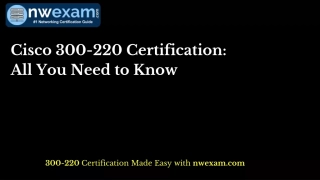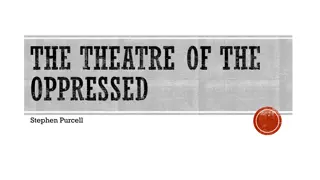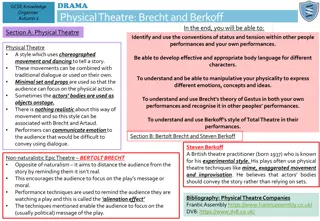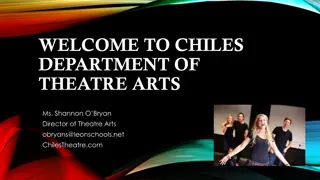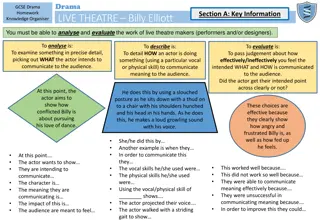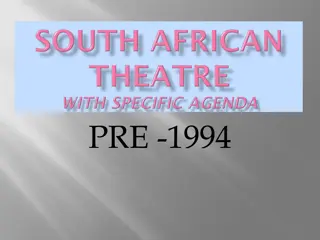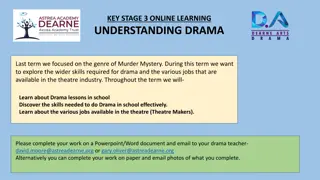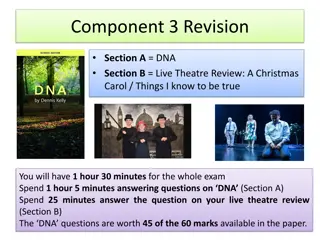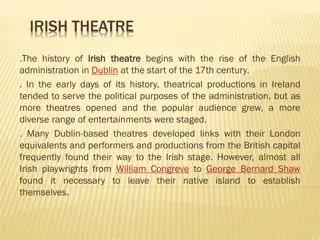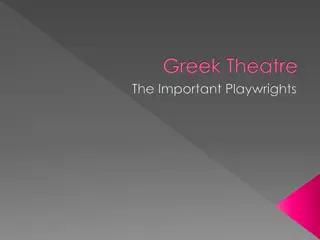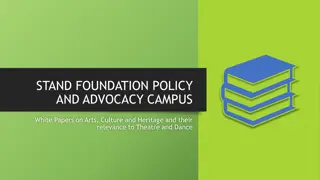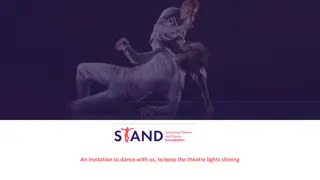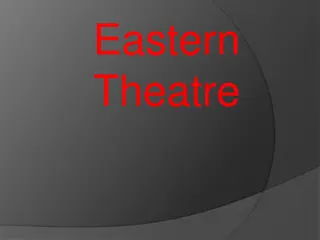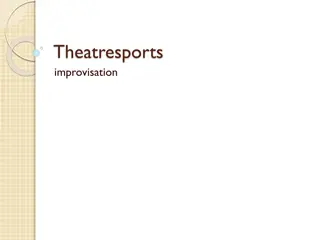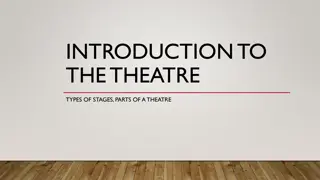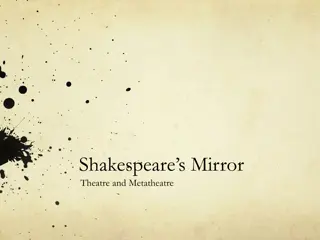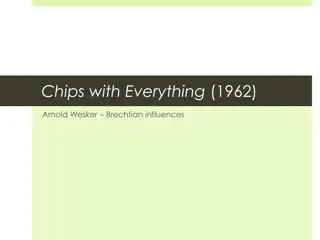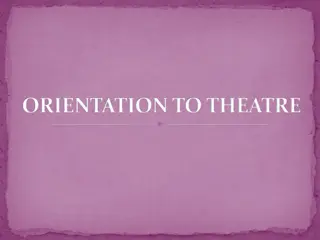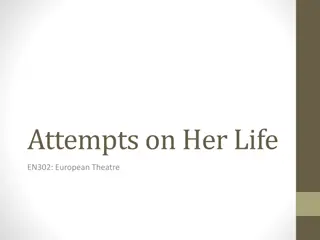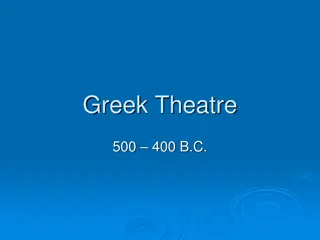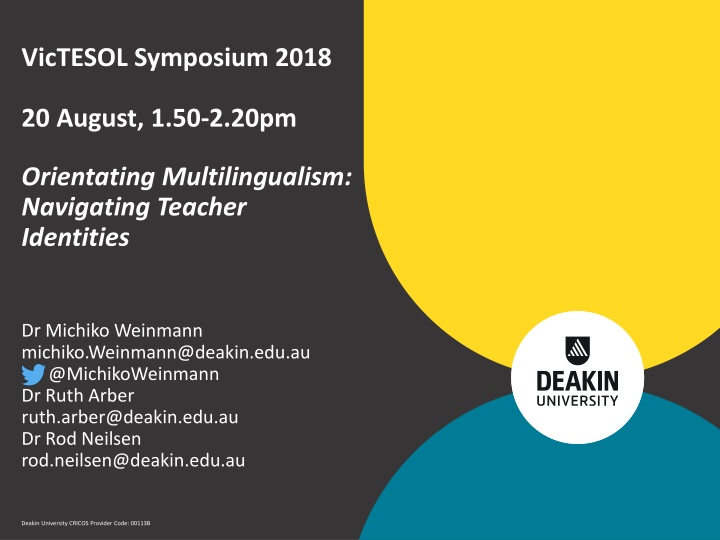
Navigating Teacher Identities: Unpacking Multilingualism in Education
Explore the complexities of teacher identities in multilingual education settings, reflecting on the importance of unpacking personal experiences to enhance teaching practices. Research findings shed light on the challenges and opportunities faced by EAL/D and Languages educators in Victoria, Australia.
Download Presentation

Please find below an Image/Link to download the presentation.
The content on the website is provided AS IS for your information and personal use only. It may not be sold, licensed, or shared on other websites without obtaining consent from the author. If you encounter any issues during the download, it is possible that the publisher has removed the file from their server.
You are allowed to download the files provided on this website for personal or commercial use, subject to the condition that they are used lawfully. All files are the property of their respective owners.
The content on the website is provided AS IS for your information and personal use only. It may not be sold, licensed, or shared on other websites without obtaining consent from the author.
E N D
Presentation Transcript
VicTESOL Symposium 2018 20 August, 1.50-2.20pm Orientating Multilingualism: Navigating Teacher Identities Dr Michiko Weinmann michiko.Weinmann@deakin.edu.au @MichikoWeinmann Dr Ruth Arber ruth.arber@deakin.edu.au Dr Rod Neilsen rod.neilsen@deakin.edu.au Deakin University CRICOS Provider Code: 00113B
Unpacking teacher identities Reading a few conversations online recently, I ve been thinking a lot about the urgent need for us as teachers to do some hard, internal work of unpacking the identities we bring to the classroom. Teaching is an intensely human activity. The best teachers are those who know that teaching and students cannot be standardised. We teach who we are. This is what can make our practice so powerful, even transformative. [ ] But I would argue that it s often our [ ] identities and experiences that have the most profound effect on our teaching, and that which most often [ ] go unexamined. (Ebarvia, 2018) 2 Deakin University CRICOS Provider Code: 00113B
Setting the scene: Overcoming invisibility a little enclave of those peculiar people who love languages and have their little culture days I think that it s very important for language teachers to be visible I think it s very easy for the languages to become a little enclave of those peculiar people who love languages and they do their own little things and they have their little culture days. You have to be a visible presence in the school in order to be taken seriously [and] on your committee, you have to sound intelligent. You have to take an active role and contribute your voice to discussions that are not just to do with language but to do with general policy in the school. (Donna, Head of Languages, Teacher of Japanese) 3 Deakin University CRICOS Provider Code: 00113B
The research This paper reports on a series of larger studies which explored the ways in which EAL/D and Languages teachers spoke about their experiences and their teaching practice (2015-16, 2016-18). Together these included interviews and focus groups held with other 20 practising teachers in diverse contexts in Victoria, Australia Six interview sessions, with twelve languages educators from diverse educational contexts, in individual and small-group sessions. Purposive sampling of participants to reflect variation between: (i) government, independent and Catholic sectors; (ii) rural, regional and metropolitan school contexts; (iii) languages taught; and (iv) different levels of experience and seniority in the profession. 4 Deakin University CRICOS Provider Code: 00113B
The research cont. The focus of the larger research project explored the ways in which recent Australian EAL/D and Languages education policy and curriculum was understood and implemented by teachers, and the notional and structural conditions that enable and impede this. As the research progressed, discussions about the ways Languages teachers experience and enact their identities, and speak about those of their colleagues and students, emerged as a significant and recurring theme. This early finding became an important research direction, which is the focus of this presentation. 5 Deakin University CRICOS Provider Code: 00113B
Methodology Open-ended questions were derived from a broader interview questionnaire designed for the overarching direction of the larger research project. Three-stage method of analysis: i. Stage 1: Described the stories the educators told in relation to their educational context and of their experiences and practices as Languages teachers within that context. ii. Stage 2: Described the themes that emerged from the stories. iii. Stage 3: Engaged principles of Critical Discourse Analysis to uncover the tropes within the teachers discussions, and to make transparent and explore the discourses that shaped these (Lather, 2013). The methodological tools provided by this approach allowed for an effective way to examine the cultural, systemic and institutional terms and conditions as they are produced through language as text (Gee, Deakin University CRICOS Provider Code: 00113B 2011). 6
Theoretical underpinnings The social turn in languages study: The social world as we understand and act within it is conceived through the lens of language and culture (Hall, 1996). Identity and representation (Hall, 1997). Teachers work within a world articulated through language and culture: The everyday ideas and practices that make up the habitus (Bourdieu 2007) are mediated by the rules and structures of institutions, and negotiated within the larger fields of social, economic and cultural relations. 7 Deakin University CRICOS Provider Code: 00113B
Identity, community and belonging In a post-colonial world, the terms and conditions that define communities are made through the particularities of their cultural and historical trajectories. These conceptions of community and belonging become increasingly complex as globalising trends change the ways that people understand day-to-day experience, domains of policy and practice, and the most taken-for-granted concepts including identity. The conception of who-we-are and who-they-are becomes increasingly difficult to define as the stranger moves inside and outside of communities, is part of the community and not part of the community at the same time. 8 Deakin University CRICOS Provider Code: 00113B
Quality control of Languages teachers Managing language proficiency skills We said, every three years you [non-native speaker teachers] need to show a proficiency certificate for the language proficiency that you have at least maintained. So we had a minimum set for Senior School Japanese teachers and if you re non-native then every three years you need to have at least a level 2 certificate [in Japanese] or you can go up to level 1. (Steven, Head of Languages.) Steven teaches at at a large, independent (private) multi-campus Foundation - Year 12 college. Languages offered at his elite school include: Japanese, Chinese, French and Latin. Previously a teacher of Japanese, he now mainly teaches Chinese, one of his native languages, besides English. 9 Deakin University CRICOS Provider Code: 00113B
Different rules of the game Language journey vs. linguistic and professional knowledge I think for Chinese, by far, we have too many native speakers and they re all teaching because they can speak the language. We ve had some rather negative experiences with native speakers. So with our native speakers, when they do the interviews we ask them about class control For non-native speakers, our interviews are very different because we re dealing mostly with not so many problems [ ] Our questions are more on the lines of what brought you to your language, what brought you to teaching, and they re more open-ended kind of questions. Not specific but you get a very good sense of who you re dealing with when you ask what journey have you taken to bring you to the language that you ve learnt. (Donna) 10 Deakin University CRICOS Provider Code: 00113B
Extending ones professional and intercultural horizons Faculties tend to do their own training in their own faculties. When I was in the language school we did whole-school staff PDs So when you re in a language school you do a lot of professional learning around the needs of the students cultural awareness, Foundation House comes out and does professional learning for students who are experiencing trauma. When we had the Korean and the Chin communities come from Burma we did a lot of professional learning on their social background those sorts of things and then just teaching practices. (Karen, Head of EAL/D at an independent girls school in metropolitan Melbourne, previously teacher at an English language school) 11 Deakin University CRICOS Provider Code: 00113B
Programming for students and teachers: Navigating diversity and belonging differently Huge challenges because of course the staff had to face this in their classroom when the students really had mixed fairly little. So it s all about the students not mixing staff doesn t even come into this In the end what we did, after the program was very well established a couple of years time that took, was to try and handle the staff situation and then to try and have them. We had a whole meeting where I presented to them; different areas of work which showed that these students were level elementary, pre-intermediate. That sort of terminology is what we used because it was better understood and they saw models of work and they started understanding that there were huge problems and you could not have the expectations that you had with the Australian students. Why not? You can certainly have the same expectations but you need to know how to get them there. So we also modified tasks for them and in conjunction with each subject teacher we produced folders of work, of tasks that oh it was a huge program that was organised gradually and oh the staff were fabulous in the end when they realised what was going on that these students were not lazy etc. (Maria, experienced EAL/D teacher at a Northern suburbs secondary college) 12 Deakin University CRICOS Provider Code: 00113B
We teach who we are: But who are we? We bring our identities and the experiences that informed them into our teaching. Se we have to interrogate the ways in which these experiences have shaped our practices and our relationships with the kids. These experiences which gave us opportunities to be educated ourselves, which eventually led to our teaching credentials . We draw upon our years of kid-watching and theory-making. 13 Deakin University CRICOS Provider Code: 00113B
We teach who we are: Where to from here? Educating ourselves asking hard, uncomfortable questions that we might not like the answers to [ ] self- questioning [ can help us] find ways, small and big, to disrupt the system around us. [ ] confronting our own complicity, intentional or not, will be hard work. But what is hard is often necessary, and we should welcome the discomfort, for that is where the most meaningful learning and growth can happen. (Ebarvia, 2018) 14 Deakin University CRICOS Provider Code: 00113B
References Arber, R. (2008). Race, ethnicity and education in globalized times. Dordrecht: Springer. Ebarvia, T. (2018). We teach who we are: Unpacking our identities. https://triciaebarvia.org/2018/07/27/we-teach-who- we-are-unpacking-our-identities/ (accessed 10 August 2018). Gee, J. (2011). An introduction to discourse analysis: Theory and method. Milton Park: Routledge. Hall, S. (1996). Introduction: Who needs identity? In S. Hall & P. D. Gay (Eds.), Questions of cultural identity (pp. 1 8). London: Sage. Hall, S. (1997). Representation: Cultural representations and signifying practices. London: Sage. Lather, P. (2013). Methodology-21: What do we do in the afterward? Qualitative Studies in Education, 26(6), 634 645. May, S. (Ed.). (2014). The multilingual turn: Implications for SLA, TESOL and bilingual education. New York: Routledge. Neilsen, R., Arber, R., & Weinmann, M. (2017). Re-imagining Asian religious identity: Towards a critical pedagogy of religion and race in Australian schools. Education Sciences, 7(2), 49. https://doi.org/ 10.3390/educsci7020049. Norton, B. (2013). Identity and language learning: Extending the conversation. Bristol: Multilingual Matters. Piller, I. (2016). Linguistic diversity and social justice: An introduction to applied sociolinguistics. Oxford: Oxford University Press. Weinmann, M. (2018). Asia Learning in global contexts: Curriculum perspectives on Asian languages education in Australia and Germany . In: B. Nickl, I. Herrschner, E. M. Go dziak (Eds.). German-Australian Encounters and Cultural Transfers Global Dynamics in Transnational Lands (pp. 111-129),Springer. doi: 10.1007/978-981-10-6599-6. Weinmann, M. & Arber, R. (2017). Orientating multilingualism: navigating languages teacher identities. Curriculum Perspectives, 37(2), 173-179. https://doi.org/10.1007/s41297-017-0028-4 15 Deakin University CRICOS Provider Code: 00113B
THANK YOU! 16 Deakin University CRICOS Provider Code: 00113B

